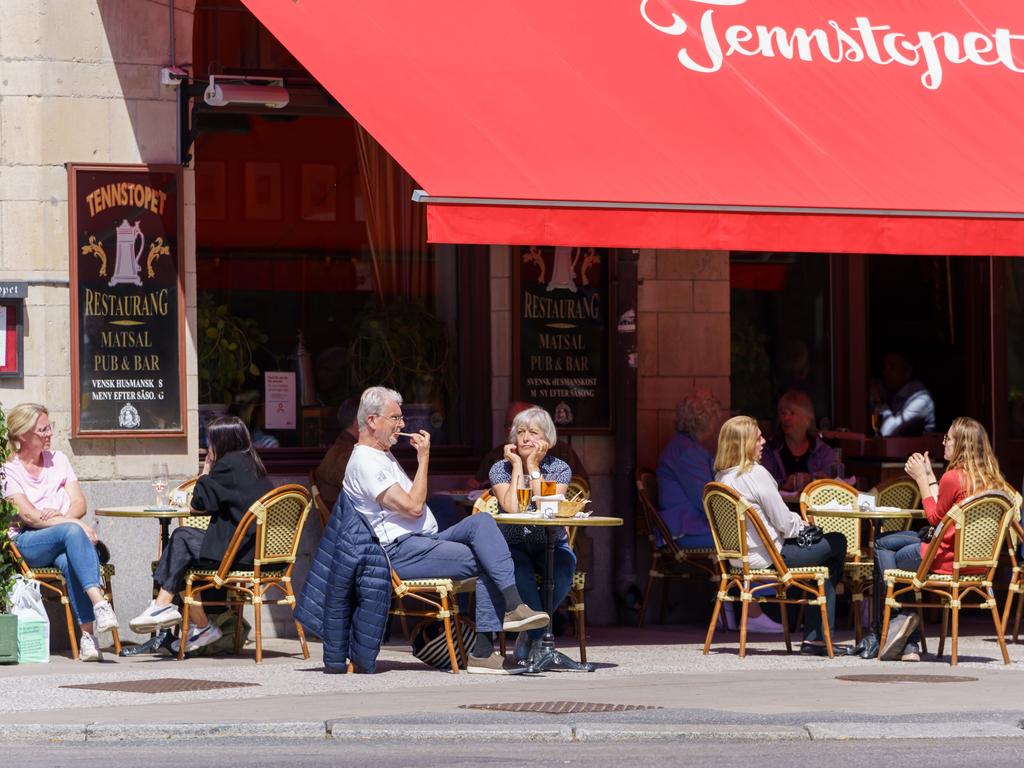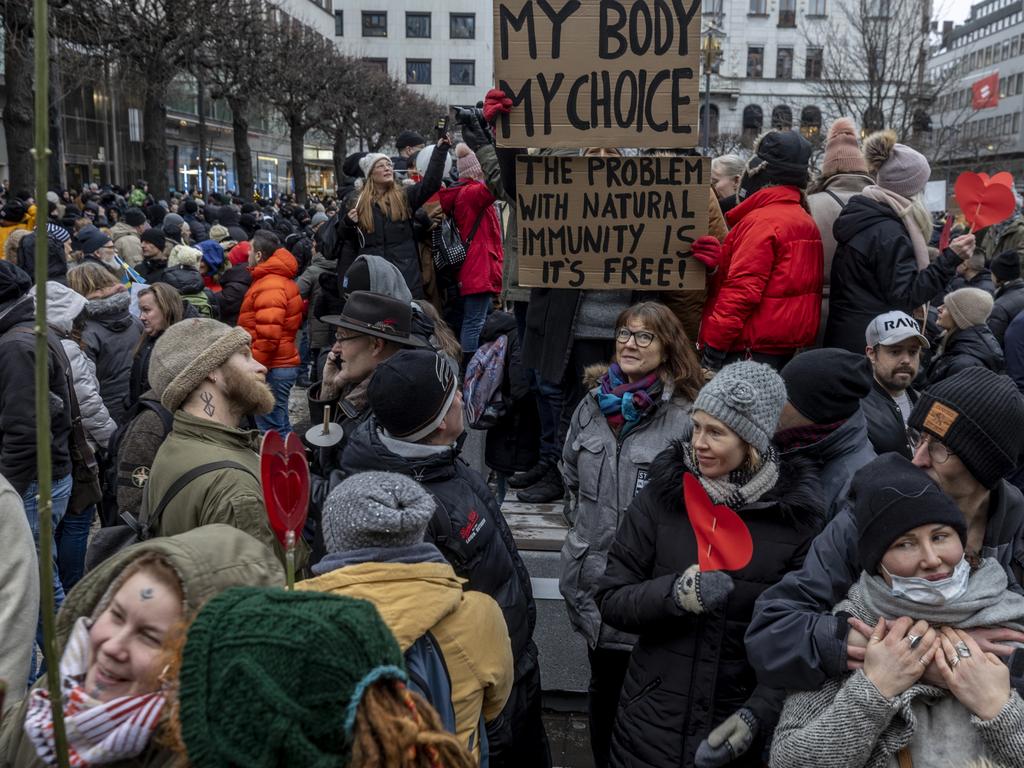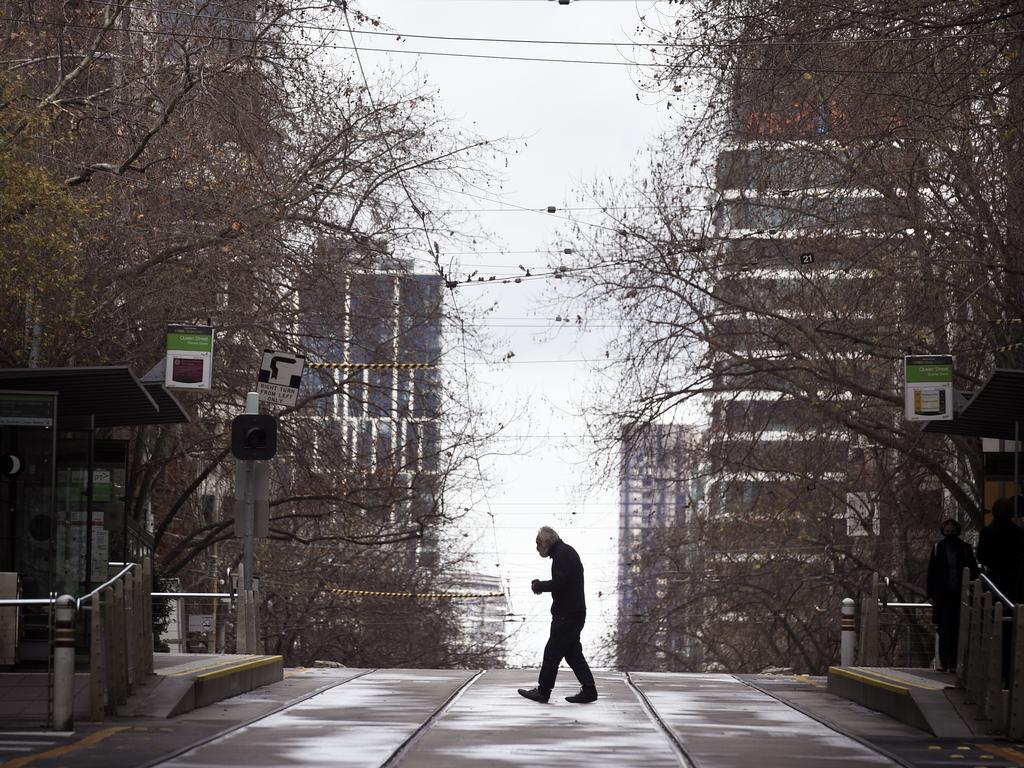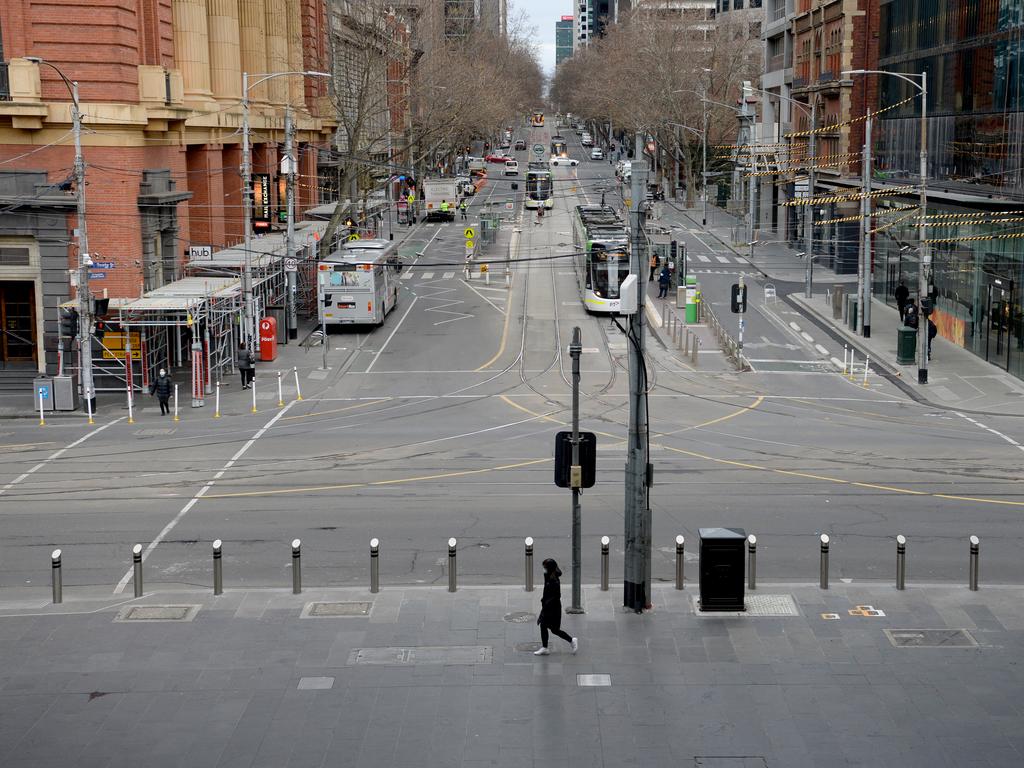
Telling new data has shown an incredible fact about one nation that completely rejected lockdowns throughout the pandemic.
Serious holes have been poked in the world’s response to the pandemic, with Sweden emerging atop a telling list of nations least affected by Covid-19.
In a list of countries studied by the Organisation for Economic Co-operation and Development, the Scandinavian nation ranked lowest for overall cumulative excess deaths from 2020-22 at 6.8 per cent, compared to Australia (18 per cent), the UK (24.5 per cent) and the US (54.1 per cent).
The results are even more poignant considering Sweden was one of the few developed nations that opted against widespread lockdowns.
As governments scrambled to make the idea of locking down regular life palatable throughout the Covid-19 pandemic, Sweden refused, opting for a “voluntary” approach to dealing with the spread.
The nation of 10.4 million kept schools from closing throughout the biggest waves of the virus’ spread and did not mandate masks.
It should be noted Sweden’s population density sits at around 25 per square kilometre, roughly half that of the worldwide average, with neighbouring Denmark having around 125 per square km.
According to the Swedish government, the country’s response has been partly based on voluntary action.
“For example, rather than enforce a nationwide lockdown, the authorities gave recommendations: to stay home if you‘ve got symptoms, to keep a distance to others, to avoid public transport if possible,” a spokesman said.
Sweden started the first steps to ease the country’s Covid-19 restrictions in June 2021, lifting certain restrictions on businesses’ opening times and caps on public events.
The Scandinavian region has at times gone against the grain in its methods of dealing with the pandemic, with Denmark recently choosing against recommending vaccines for children due to the low risk the virus poses to young people, compounded with the Covid-19 vaccine’s questionable effectiveness at stopping transmission.
In January this year, nearly 3,000 people gathered on Sergels Torg in Stockholm to demonstrate against the government’s vaccine passes, which were at the time still required to enter the nation.
In April, Sweden lifted all travel restrictions from visitors overseas, meaning people do not have to prove they are vaccinatewd or negative for Covid to come to Sweden.

In January 2022, nearly 3,000 people gathered on Sergels Torg in Stockholm to demonstrate against the government’s vaccine passes.
Officials were repeatedly warned against lockdowns
Health officials have been criticised for ignoring the widespread effects lockdowns can have on mental health, citing troubling data from some of the world’s most locked-down cities, including Melbourne.
Documents released in 2021 showed Victoria’s Mental Health Minister was warned about the run-on effects of widespread lockdowns in a two-page ministerial briefing note, which also alerted him to a rise in youth self-harm incidents, hospital presentations and suicidal ideation.
The measures were followed by police officials urging the public to tip them off about “illegal” family gatherings and household visits. Some states, including Western Australia, proudly employed camera drones to scale public areas for those breaching their hourly quota of outdoor time.
There is a full inquiry underway into Australia’s response to Covid, with an independent review being funded by three major philanthropic organisations and headed by Western Sydney University chancellor Peter Shergold.
“Schools should have stayed open,” the almost 100-page report found.
“It was wrong to close entire school systems, particularly once new information indicated that schools were not high-transmission environments”.

Health officials have been criticised for ignoring the obvious widespread effects lockdowns can have on the population.
The report found school closures were “likely to have significant adverse impacts on children’s outcomes in education, social development and mental and physical health”.
“For children and parents (particularly women), we failed to get the balance right between protecting health and imposing long-term costs on education, mental health, the economy and workforce outcomes.”
The report found lockdowns and border closures — among restrictions and overreaching provisions — were effectively inhumane and should only have ever been used as a “last resort”.
“Rules were too often formulated and enforced in ways that lacked fairness and compassion. Such overreach undermined public trust and confidence in the institutions that are vital to effective crisis response,” it read.

Documents released in 2021 showed Victoria’s Mental Health Minister was warned about the run-on effects of widespread lockdowns in a two-page ministerial briefing note, which also alerted him to a rise in youth self-harm incidents, hospital presentations and suicidal ideation.
Prime Minister Anthony Albanese said concerns raised by the report would make their way to a future inquiry on the pandemic.
However, state leaders like Victorian Premier Daniel Andrews, who oversaw one of the longest lockdowns globally – with Melbourne clocking 262 days under stay-home orders – pushed back against the report’s findings.
“There was nothing academic about COVID-19,” he told reporters.
“There’s nothing academic about the fact that we didn’t have any vaccines.”
NSW Premier Dominic Perrottet said the country should be proud of its overall response, admitting “there were difficult decisions – we got some right, we got some wrong”.
Queensland Premier Annastacia Palaszczuk also defended her policies of effectively isolating the state for months.
“We made the decisions in the best interests of Queenslanders and it kept Queenslanders safe,” she said.
“I stand by our world-leading result when it comes to the number of lives that were lost compared to other jurisdictions.”
